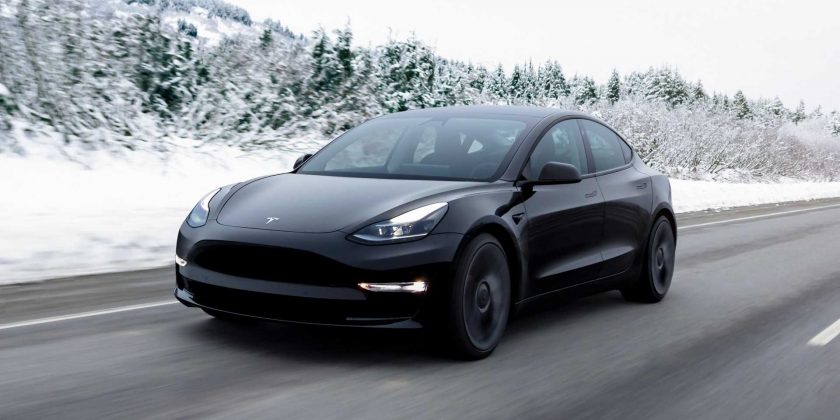Remember when you used to read that EVs are almost at price parity with gas cars – so long as you factor in a $7,500 tax credit that most people don’t qualify for, state and local incentives that are few and far between, and future savings on fuel costs and maintenance? Now, we can honestly say that without any such incentives, a brand-new Tesla Model 3 can be had for less than the average transaction price of a new car in the US.
The average new car transaction price is often on the rise, and the last few years have been a disaster for the automotive market thanks to COVID-19 and its aftermath. According to Kelley Blue Book – a publication that tracks and shares average new car transaction prices in the US each month – the average new car cost came in at nearly $50,000 this January 2023. While down from previous months thanks in part to Tesla, this marks a 6% increase over January 2022.
To be fair, EVs are part of the reason that price is rising. More people in the US are buying electric cars, so the average transaction price is going up. EVs are priced much like luxury cars, but only some are actually classified in the luxury segment. That said, while people in the US are buying fewer traditional luxury cars, the average price is still going up thanks in part to EVs. Moreover, the average price of just about all new cars, including budget-friendly mainstream offerings, is climbing.
Meanwhile, the base Tesla Model 3 starts at $42,990, or, as Tesla likes to point out, $31,290 after potential incentives. However, Tesla has recently proven that it no longer needs to put emphasis on the fact that when you buy the Model 3, you could potentially save $11,700.
Nonetheless, the automaker lists the revamped $7,500 federal EV tax credit, which many folks (especially those who aren’t somewhat wealthy) simply don’t have the tax liability to qualify for. Also listed on Tesla’s site is its estimated $4,200 in fuel cost savings over six years, though that doesn’t help buyers in the near term.
If you were to buy a Model 3 today, you’d be looking at a minimum of $44,630, including the destination and order fees, but excluding other fees and taxes. If you financed it through Tesla at 5.44% for 72 months and put 10% down ($4,500), you’d be looking at a monthly payment of around $650.
Tesla is also offering a leasing program with the same money down and a monthly payment of just $349 (recently $399), but you won’t get to buy the car at the end of the term.
At this point, you’ll have to look at your budget and crunch the numbers to see if the above lease or financing options may work for you. There’s a good chance you can do better on the financing through a bank or a credit union.
If you are considering a new EV, be sure to sit down and figure out whether you can actually get any tax credits or incentives, and when you’ll actually get the money. It would also be wise to figure out how much money you’ll likely save on fuel costs, since you can take the difference out of your monthly budget and use it toward the car payment.
Sources: Tesla, Kelley Blue Book via Teslarati
Source: Read Full Article

